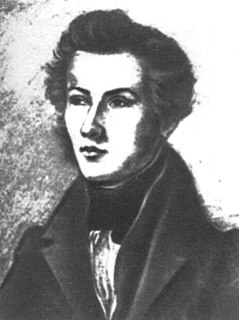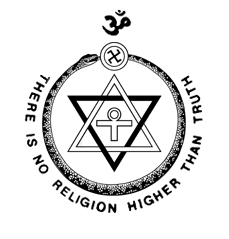A Quote by Martin Heidegger
As the ego cogito, subjectivity is the consciousness that represents something, relates this representation back to itself, and so gathers with itself.
Quote Topics
Related Quotes
One can ask why the I has to appear in the cogito {Descartes’ argument “I think therefore I am.}, since the cogito, if used rightly, is the awareness of pure consciousness, not directed at any fact or action. In fact the I is not necessary here, since it is never united directly to consciousness. One can even imagine a pure and self-aware consciousness which thinks of itself as impersonal spontaneity.
The thing is that the ego cannot cure itself of its own malady of egoism; it's already infected by the disease itself. And that is why it is necessary to go to a guru who knows God and by absorbing his consciousness into yourself, you discover that you aren't this ego. You cross that abyss and you find that you are infinite.
The heart-throb for the welfare of humanity therefore passes into the ravings of an insane self-conceit, into the fury of consciousness to preserve itself from destruction; and it does this by expelling from itself the perversion which it is itself, and by striving to look on it and express it as something else.
Ego is neither positive nor negative. Those are simply concepts that create more boundaries. Ego is just ego, and the disaster of it all is that you, as a spiritual seeker, have been conditioned to think of the ego as bad, as an enemy, as something to be destroyed. This simply strengthens the ego. In fact, such conclusions arise from the ego itself. Pay no attention to them. Don't go to war with yourself; simply inquire into who you are.
There are only two states of consciousness that exist - the state of the ego and the state of love. The ego is the narrow state, the seed-form, the atomic stage; love is all encompassing, love is God. The center of the ego is I; the ego exists for itself. The nectar of love is the universe. Love exists for all.
But can one not conceive of a presence, and of a presence to itself of the subject before speech or signs, a presence to itself of the subject in a silent and intuitive consciousness? Such a question therefore presupposes that, prior to the sign, and outside it, excluding any trace and any différance, something like consciousness is possible.
The ego is not a thing but a subtle effort, and you cannot use effort to get rid of effort - you end up with two efforts instead of one. The ego itself is a perfect manifestation of the Divine, and it is best handled by resting in Freedom, not by trying to get rid of it, which simply increases the effort of the ego itself
In this way the ego detaches itself from the external world. It is more correct to say: Originally the ego includes everything, later it detaches from itself the external world. The ego-feeling we are aware of now is thus only a shrunken vestige of a far more extensive feeling - a feeling which embraced the universe and expressed an inseparable connection of the ego with the external world.
Therefore, criticism has to direct itself against itself, and against the mysterious Substance in which it has up to now hid itself. In this way criticism must resolve things such that the development of this Substance drives itself forward to the Universality and Certainty of the Idea of its actual existence, the Eternal Self-consciousness.
The student should bear in mind that the very essence of consciousness is constantly to identify itself with the Not-Self, and as constantly to re-assert itself by rejecting the Not-Self. Consciousness, in fact, consists of this alternating assertion and negation - "I am this" - "I am not this." Hence consciousness is, and causes in matter, the attracting and repelling that we call a vibration.







































